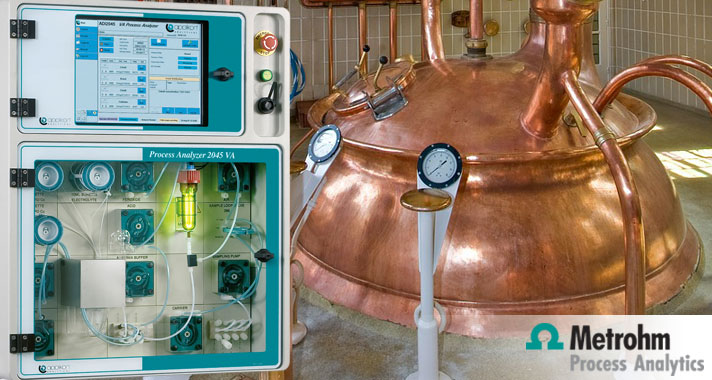Sustainable water management in breweries requires alkalinity and hardness testing.
Beer is an alcoholic beverage consumed in most countries worldwide, made from fermented malted grains, with an alcohol content from 3 to 10%. Its origins are unclear, but it has been linked to ancient civilizations, with recipes inscribed thousands of years ago upon stone tablets. Before today’s hygienic practices were applied, alcoholic beverages were developed as a water purification technique, as drinking water from natural sources was likely to make one ill due to pollution and disease.
The beer brewing process is intensive and can be categorized in the following steps: malting, milling/grinding, mashing, lautering (separating and rinsing the grains from the liquid portion known as wort), boiling the wort, fermenting, conditioning, filtering, and finally filling bottles or barrels. Each step must be properly controlled in the process to ensure uniformity of the end product, which is important to facilitate brand loyalty.
Making beer incurs a huge water footprint, requiring up to 300 L of water to create 1 L of beer, though 94–98% of that water is designated for agricultural purposes before the brewing process even begins.
More and more breweries are taking steps to become more sustainable regarding their water usage, which means process optimization and more efficient practices. To this end, process parameters of the used water such as alkalinity, hardness and pH value have to be determined.
Alkalinity in water is due to the presence of compounds such as carbonates, bicarbonates, and hydroxides which raise the pH of the water and buffer it against further pH change. Hardness constituents in water are usually calcium and magnesium ions (Ca2+ and Mg2+). They are mainly present as hydrogen carbonates and sulfates or, in rare cases, as chlorides. Hardness is balanced to a large degree by the alkalinity.
The temperature and the composition of the water used in the initial stages of the brewing process is especially important for optimal extraction of starches from the milled grains. Temperature changes during mashing can adversely affect the fermentability of the sugars because of a narrow working temperature range (55–72 °C) for the enzymatic starch conversion processes.
The pH of the water can be important in the lautering process, where some make-up water is needed for sparging (rinsing the sugar from the spent grains). If the pH of the mash or sparge water exceeds 5.7, the resulting beer will have an astringent mouthfeel due to excess tannin extraction from the grain husks. After lautering comes the boiling process where hops are added to the wort (the sugary liquid precursor to beer), and again, if the pH is above 5.7, excess tannins can be introduced. Pale ales are especially influenced by any pH changes. Pale ales do not contain roasted malts, which naturally acidify the mash, so the process must be more closely monitored for the proper pH, hardness, and alkalinity.
In order to extract the proper compounds, keep the pH within specifications, and brew the same flavors over multiple batches, both alkalinity and hardness of the process and make-up water must be monitored and kept at proper levels. The Metrohm Process Analytics 2045TI and 2035 Process Analyzers are ideally suited for the fully automatic execution of these important analyses, as well as additional parameters like pH or conductivity. The alkalinity of water is determined by acid titration; the results given in mg CaCO3 per liter. Hardness is determined with a complexometric, potentiometric titration in basic medium using an ion-selective electrode (Cu-ISE). The process analyzer can send an alarm to the plant control system if alkalinity or hardness levels are not optimal, signaling the distribution system to correct the water chemistry, ensuring consistent product quality.









